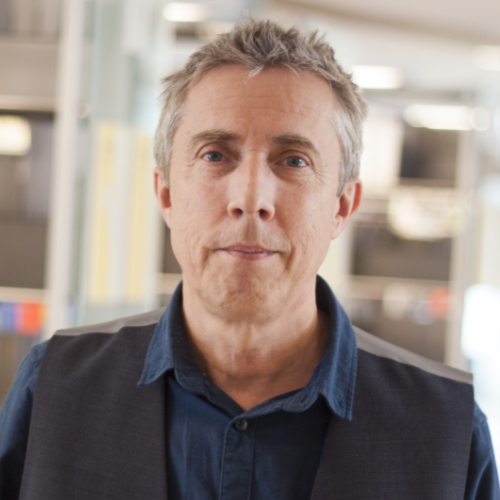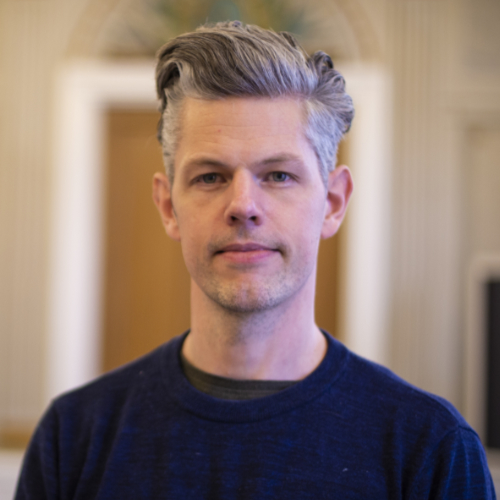Flexible Work
Flexible Work is a research programme that aims to explore the opportunities and challenges of new forms of work and employment in modern working life.
Working flexibly – opportunity or challenge?
Working remotely or having flexible working hours. Having temporary employment or working for a staffing company. How do these affect the health of employees and are they good for organisations’ sustainability? What does it mean for working conditions and the work environment? And what new demands are being made on employers and managers? Do new ways of working and policies need to be developed?
Flexibility in time and space
In Sweden today, around 2/3 of employees have flexible or unrestricted working hours. Moreover, more than a third can work from home to varying degrees. For the individual, there is an opportunity to find a better balance between work and private life but there is also a risk that the flexibility turns into boundaryless availability and reduced control of one’s life. For employers, offering flexible working conditions can increase their attractiveness as employers, as well as offering the ability to adapt during periods of fluctuating demands in their activities. There are also new challenges in terms of work environment responsibility and how the work should be organised and coordinated.
Temporary employment
About 15% of employees in Sweden have temporary employment. Fewer than 2% are also employed by staffing companies. Both of these forms of employment can mean flexibility for employers and the opportunity to quickly adapt to changes in both the public and private sectors. Such forms of employment can also provide greater flexibility for some employees. However most people in temporary jobs want a permanent job and staffing company employees often want a traditional permanent job with the same employer.
Webinar: When home becomes office - who benefits?
Do we feel better when we work fully or partially at home? Can remote and hybrid work make an organisation more sustainable and profitable? Forte (the Swedish Research Council for Health, Working Life and Welfare) organised a webinar aimed primarily at those who work with work environment issues as managers, officials or practitioners, but everyone with an interest in work environment issues was welcome!
Participants were Gunnar Bergström and David Hallman, researchers in occupational health science at the University of Gävle, who shared results from their ongoing research programme Flexible work - opportunity and challenge, which is run with funding from Forte.
Webinar on Sustainable Remote Working
The Swedish Agency for Work Environment Expertise, together with the Work Environment Authority and labour market stakeholders, organised a webinar on sustainable remote working. One of the speakers was Professor Gunnar Bergström on the following subject: Health, the work environment and work performance with remote working from home.
About the Flexible Work research programme
Facts about the research programme
Aim
The aim of the “Flexible Work” research programme is to describe and understand possible connections between flexible forms of employment and work and (1) organisational sustainability, (2) working conditions and the work environment, and (3) employees’ health. Are there differences depending on sector, different occupational areas, age, gender and socio-economic status?
Target group
We are targeting both private and public sector organisations. Participation involves collaboration between the organisation and the research group at the University of Gävle. Participation does not involve any extra costs for the organisation other than time spent at planning meetings and in participating in measurements and data collection on the work environment.
Project members
Gunnar Bergström, professor (programme head, occupational health sciences)
David Hallman, senior lecturer (coordinator, researcher, occupational health sciences)
Sven Svensson, senior lecturer (researcher, occupational health sciences)
Marina Heiden, senior lecturer (researcher, occupational health sciences)
Svend Erik Mathiassen, professor (researcher, occupational health sciences)
Iman Dadgar, postdoctoral researcher
Patricia Holmberg, amanuens
Leticia Januario, researcher
Andreas Kjörling, PhD student
Tea Korkeakunnas, PhD student
Nestor Lögdal, PhD Student
Jean Claude Mutiganda, senior lecturer
Annika Strömberg, senior lecturer
Malin Svensson, research assistant
Birgitta Wiitavaara, senior lecturer
Flexibelt arbete i media
- Di Debatt: Distansarbete kan bidra såväl positivt som negativt till ekonomisk produktivitet
 External link.
External link. - Studie: Det här kräver vi av chefen vid flexibelt arbete
 External link.
External link. - Flexibelt arbete ger ofta skuldkänslor
 External link.
External link. - Employees About Working Flexibly: ‘Easy to Feel Guilty’
 External link.
External link. - Flexibelt arbete är att skilja på jobb och fritid
 External link.
External link. - Lätt att man känna skuld vid flexibelt arbete
 External link.
External link. - Chefer behöver hjälpa till att sätta gränser
 External link.
External link. - SVT: Coronapandemins positiva sidoeffekter
 External link.
External link. - forskning.se: Chefens stöd avgörande vid distansarbete
 External link.
External link. - DN: Nu planeras arbetslivet efter pandemin – distansjobb på deltid på flera stora arbetsplatser
 External link.
External link. - TV2, Norge: Slik har pandemien påvirket søvnen vår
 External link.
External link. - VD-tidningen: Möjligheter och risker med det flexibla arbetet
 External link.
External link. - DN: Hemarbetare kan sova längre - effekterna undersöks
 External link.
External link. - forskning.se: Hemmajobbare sover längre men är lika produktiva
 External link.
External link. - Tidningen Arbetsliv: Mer sömn under pandemin
 External link.
External link. - Sveriges Radio: Hemarbetare sover i snitt en halvtimme längre
 External link.
External link.
Latest publications from Flexible Work
Brusaca, L., Hallman, D., Januario, L., Gupta, N., Oliveira, A. & Mathiassen, S. (2023). Working at the office or from home during the COVID-19 pandemic: a cross-sectional study of temporal patterns of sitting and non-sitting among normal-weight and overweight Brazilian office workers. Journal of Activity, Sedentary and Sleep Behaviors, 2. 10.1186/s44167-023-00038-0 External link. [Mer information]
External link. [Mer information] External link.
External link.
Edvinsson, J., Mathiassen, S., Bjärntoft, S., Jahncke, H., Hartig, T. & Hallman, D. (2023). A Work Time Control Tradeoff in Flexible Work: Competitive Pathways to Need for Recovery. International Journal of Environmental Research and Public Health, 20 (1). 10.3390/ijerph20010691 External link. [Mer information]
External link. [Mer information] External link.
External link.
Heiden, M., Hallman, D., Svensson, M., Mathiassen, S., Svensson, S. & Bergström, G. (2023). Mismatch between actual and preferred extent of telework: cross-sectional and prospective associations with well-being and burnout. BMC Public Health, 23. 10.1186/s12889-023-16683-8 External link. [Mer information]
External link. [Mer information] External link.
External link.
Korkeakunnas, T., Heiden, M., Lohela Karlsson, M. & Rambaree, K. (2023). Managers’ Perceptions of Telework in Relation to Work Environment and Performance. Sustainability, 15 (7). 10.3390/su15075845 External link. [Mer information]
External link. [Mer information] External link.
External link.
Svensson, S., Mathiassen, S., Hallman, D., Heiden, M. & Bergström, G. (2023). Associations between telework experience and psychosocial working conditions during the COVID-19 pandemic: A cross-sectional analysis among white-collar workers in Sweden. Journal of Occupational and Environmental Medicine, 65 (2), e74-e82. 10.1097/JOM.0000000000002758 External link. [Mer information]
External link. [Mer information] External link.
External link.
Wahlström, V., Januario, L., Mathiassen, S., Heiden, M. & Hallman, D. (2023). Hybrid office work in women and men: do directly measured physical behaviors differ between days working from home and days working at the office?. Annals of Work Exposures and Health, 67 (9), 1043-1055. 10.1093/annweh/wxad057 External link. [Mer information]
External link. [Mer information] External link.
External link.
Gilson, N., Coenen, P., Hallman, D., Holtermann, A., Mathiassen, S. & Straker, L. (2022). Postpandemic hybrid work: opportunities and challenges for physical activity and public health. British Journal of Sports Medicine, 56 (21), 1203-1204. 10.1136/bjsports-2022-105664 External link. [Mer information]
External link. [Mer information] External link.
External link.
Mutiganda, J., Wiitavaara, B., Heiden, M., Svensson, S., Fagerström, A., Bergström, G. & Aboagye, E. (2022). A systematic review of the research on telework and organizational economic performance indicators. Frontiers in Psychology, 13. 10.3389/fpsyg.2022.1035310 External link. [Mer information]
External link. [Mer information] External link.
External link.
Haapakangas, A., Hallman, D. & Bergsten, E. (2023). Office design and occupational health – has research been left behind?. Scandinavian Journal of Work, Environment and Health, 49 (1), 1-4. 10.5271/sjweh.4073 External link. [Mer information]
External link. [Mer information] External link.
External link.
Pagard, S. (2024). Promoting Work-Life Balance in Flexible Work. Diss. (sammanfattning), 2024. Gävle: Gävle University Press. 64 s. (Doctoral thesis 39) Länk External link.
External link.  External link. [Mer information]
External link. [Mer information] External link.
External link.
To see all publications from the research programme Flexible Work visit the programme page in DiVA External link.
External link.
Funding
This research is funded by a programme grant from the Swedish Research Council for Health, Working Life and Welfare (FORTE). Additional funding has also been received from Afa försäkring.
Programansvariga

Contact Gunnar Bergström if you have any questions about the research programme or read more about his research and see his publications in the research presentation.

Contact David Hallman if you have any questions about the research programme or read more about his research and see his publications in the researcher presentation.
This page was last updated 2024-05-13
